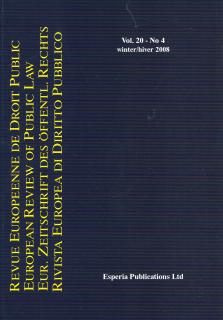
Administrative Law / Droit administratif
2008
Serbia / Serbie
Associate Professor at the School of Law, Union University in Belgrade
The ability to assume the obligations of membership, in particular adherence to the objectives of political, economic and monetary union by adapting its administrative and judicial structures, is one of the criteria Serbia must fulfil on its way to EU membership. This requires comprehensive public administration reform targeting numerous key areas, such as the organisation of public administration and building a professional and depoliticised civil service capable of responding effectively to citizens’ needs. Bearing in mind some of the founding principles stipulated in the Public Administration Reform Strategy in the Republic of Serbia, namely the principles of rationalisation, professionalisation and depoliticisation, the author outlines Serbia’s progress in 2008. In the reporting period, Serbia faced significant problems related to the macro-organisation of public administration. These are reflected in the proliferation of state administration bodies, overlapping competences between bodies, imprecise definition of their scope of work and in the questionable raison d’être of certain bodies. On the other hand, considerable progress has been made in the processes of professionalisation and depoliticisation through the professional development of civil servants in numerous key areas and through a merit-based and non-political recruitment and promotion procedure. Certain deficiencies can be explained by the constant political instability in Serbia, while others are simply the results of unreadiness of the Serbian Government to fully implement public administration reform.





















